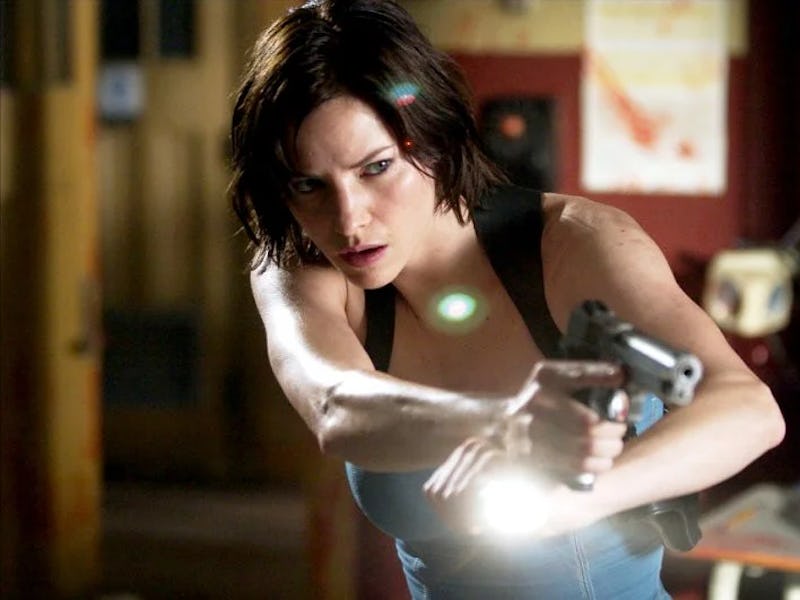This Familiar Gaming Controversy Should Finally Teach Us Something New
PC Gamer’s recent mistake only highlights an ongoing issue.

Zelda, Lara Croft, Princess Peach, Samus Aran. You can’t even imagine games without these essential characters. And yet, even in 2023, some people still seem to believe that the video game industry and the press that covers it consists entirely of men.
The latest incident occurred last week when PC Gamer published its most recent print edition commemorating 30 years of the magazine through a series of interviews with former editors and employees. But readers noticed that the lengthy package of stories largely left out the women who worked at PCGamer over those three decades. So women in gaming received another round of rote but overwhelming disappointment, commiserating with each other online, including through a post on the subreddit r/GirlGamers with over 800 upvotes.
In an email to Inverse, PC Gamer’s editor-in-chief Phil Savage apologized, calling this oversight “particularly embarrassing.” Here’s his full statement:
“The feature in question is a series of anecdotes and reflections from the editors of the UK magazine down the years. We recognize that the history of gaming media is disproportionately male, and we made an error by not including any of the women who have worked at PC Gamer. We're very disappointed by this mistake, and it's particularly embarrassing because this was a series of magazine pages about ourselves. We aim to learn from this and do better in the future.”
This PC Gamer controversy isn’t shocking. It’s just another letdown on top of an already heaping plate.
Women in the industry are uneasily used to the sidelines. Misogyny in gaming is a serpent eating itself — it makes people overlook women’s work and accomplishments for decades, and so the industry is still dominated by men.
The boys know their house is gated with steel. According to one recent survey, 61 percent of the gaming workforce is male, while 79 percent of video game protagonists are men. And last June, Summer Game Fest’s highly anticipated two-hour showcase featured a grand total of zero women onstage. (In an interview with the Canadian Broadcast Corporation, organizer Geoff Keighley defended the event, saying one female voice actor was supposed to appear onstage but had to cancel because of a scheduling conflict.)
So while this PC Gamer controversy isn’t shocking, it’s yet another letdown on top of an already heaping plate. But what’s the solution?
Jay Justice, a video game developer and diversity advocate who worked on Stray Gods: The Roleplaying Musical and BioWare’s Mass Effect Legendary Edition Community Council, tells Inverse that it’s up to the men who’ve long benefited from an unfair system to take an active role in fixing it.
Men need to “continue to speak up when they see marginalized genders being excluded from opportunities,” she says, “to think about others outside themselves, to share their salary information with their co-workers so no one gets underpaid, and to recommend women and non-binary people for roles we are qualified for, but not getting… [Discrimination] is pervasive and persistent. We have to actively work against it to dismantle it, and it is a never-ending process.”
“Nothing frustrates me more than seeing some vague wishy-washy call to action that doesn’t actually address a problem or a specific instigator.”
Tabitha Beidleman, a PR professional who streams on Twitch as SailorTabbyCat for nearly 4,000 followers, added that companies need to take real action, rather than continue to issue vague statements and hope for the best.
“It’s not enough to just acknowledge that women and non-binary people have it extremely hard when trying to prove our chops. Especially women of color. Especially Black women,” Tabitha tells Inverse. “Nothing frustrates me more than seeing some vague wishy-washy call to action that doesn’t actually address a problem or a specific instigator.”
In my own experiences as a female gaming journalist, male colleagues have meant well, but that’s about as much as they contribute. I’ve had 100 people in my comments section practicing their bleak array of insults simply because I was a woman in games sharing her opinion with conviction. Male coworkers would occasionally be apologetic, but that was it.
“We're already creating amazing things. Hire us and let us create them with you.”
Breaking into a historically male space as a woman can sometimes feel like performing an exacting surgery. No sudden movements, I’ve often reminded myself during my years watching and reporting on the video games industry, and no complaints.
But fixing gaming’s problem with women requires very publicly making some noise. Looking to 2024, Justice challenges the industry to take women seriously in material ways.
“I don't want to see a single game dev panel without women on it, a studio photo without a ton of women in it, or a single notable game dev list without several women on it,” she says. “We're already creating amazing things. Hire us and let us create them with you.”